JACQUES LIZÈNE
Jacques Lizène was, along with Jacques Lennep and Jacques-Louis Nyst, among the most productive members of the Liège artistic collective ‘Le Cercle d’Art prospectif’ (CAP), who developed a considerable bod of work from 1972 onwards surrounding the idea of ‘relational’ art. This concept, hugely influenced by structuralism and the theories of Umberto Eco, Roland Barthes, Louis Marin and Pierre Restany, starts from the assumption that artistic expression always depends on countless ‘relations’, in the same way as perception is determined by an associative and relational network. In this respect art can’t and shouldn’t be perceived as an ultimate or universal truth, but rather as a relational and, above all, relative collection of correspondences. That is why the work of CAP was characterised by an ironic tone of parody, making use of all available media, plastic means as well as literature, performances, audio and, mainly, video. The political-sociological perspective was in many respects an inheritance of the Fluxus movement, even though Lizène, who was already active during the middle of the 1960s, prefers to designate his own work as “Non-Fluxus.” The distinction, according to Lizène, is found in the overall tone: whereas Fluxus practically embraces life, Lizène opposes to it, with a tongue-in-cheek attitude he embodies the “vasectomy” and the “infantilism”. It is just as tempting to trace a direct link to the derisory dimension of Dadaism, but rather than raving about the intellectualism of the Dadaists, Lizène prefers to situate himself within the “banlieu” of art. The self-appointed “minor master of Liège from the 2nd half of the XXth century” builds his work – sculptures, video, ... – around the idea of mediocrity, because it is, after all, "very generous, since it allows everything to exist”. He always refers to his projects, products of the virtual ‘institut de l’art stupide’, as “easy”, “unimportant” or “ridiculous”. The absolute, which we aspire and glorify far too easily, does not exist. Lizène acts with “untalented” art, absurd gestures, burlesque words and near-to-nothing. The artistic concept is challenged, squeezed to the bone, strained far beyond its artificial limitations. With a sardonic smile around the corners Lizène provokes each discourse, fully autonomously and even autarkic – for instance when he decides during the middle of the 1970s to be “his own tube of paint” and he starts to paint with his own excrement as pigment, scrupulously managing his food supply to achieve the proper shades. More than art itself, he is aiming for the ‘artist’, which becomes most clear in the video work which he produces from 1971 onwards, at first in the way of installations in the Liège Yellow gallery, and later on also in short video sketches (during the 1971 – 1973 period) or longer propositions of scornful ideas (1974-1975) and the countless ‘remakes’ which he produces of his own work. With limited technical means he stages himself, untalented and useless, as a theatrical and self-destructive undermining of the image we have of the artist. In Quelques Séquences d’art sans Talent (1979) for instance, recorded for the television show ‘Vidéographie’ in the studios of the public network RTBF, in which he wallows around in nihilism, time and again ridiculing and tearing down his gestures and cheap video-effects (his ”volets électroniques”). His feigned naiveté results in a Socratic form of irony, the denial of total savoir-faire reveals mechanisms of meaning, in the by now sterile institute art has become, in life, which slowly extinguishes according to Lizène.
In 1993 Lizène also produced, along with Paul Paquay, the mock documentary Un Art Belge, Une Certaine forme d’humour selon Lizène. Since 2000 he has been working with the Liège video workshop A.V.C.A.N (Atelier de Vidéo de Création et des Arts Numériques).
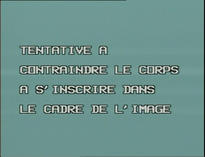
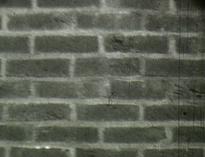
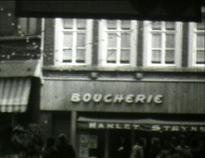
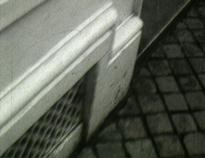
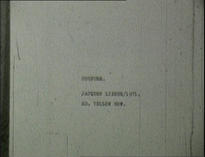
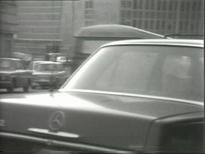
- ° 1946 Liège (Belgium).
-
EVENEMENTEN
-
At view in the media library
WERKEN